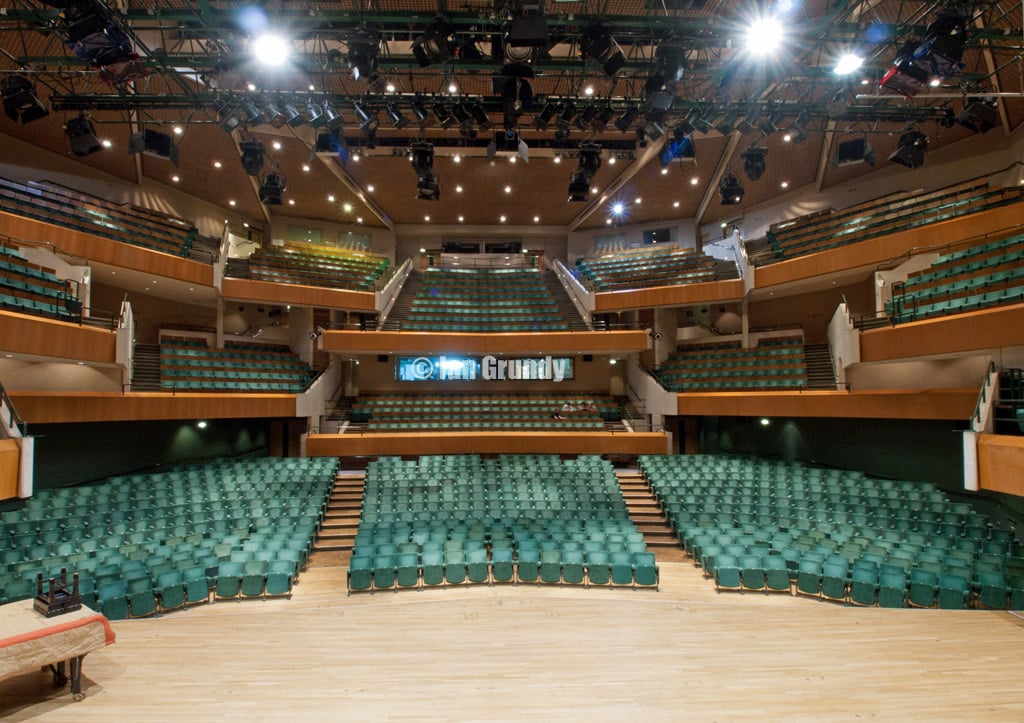Listen: A lost Enesco work is brought to light
mainAhead of Romania’s centenary of independence in December, Capriccio has recorded in Berlin a rediscovered 1916 oratorio, titled “Strigoii” (Ghosts).
The score turned up in in the 1970s at the Enescu museum but has only now been realised by the composer Cornel Țăranu. It is described as the missing link between his early Lieder and his great opera Oedipe.
Check it out.






This is a major milestone in our still developing upderstanding of Enescu’s legacy as a composer – having read about this work in reference books, documents and letters for several years, it will be exciting to hear it.
Erm, it’s not the centenary of Romania’s independence in December, as such – it’s the centenary of the union of Transylvania, the Banat, Bessarabia and Bukovina (formerly part of the Kingdom of Hungary) with the Kingdom of Romania (which had been a Kingdom since 1881). And, of course, the post-WW1 annexations are still viewed as controversial by Hungarians both inside and outside Romania.
D-l Porumbescu, are you still living in Romania? Because if you were, you could see that a huge amount of marketing here for the celebration of the Marea Unire is using the word independență. (When I say “marketing”, I am referring in large part to how shops are selling trinkets and household items with the Romanian tricolor on them to try to cash in on this occasion. Ironically, but completely naturally, most of that patriotic kitsch is labeled as “Made in China”.)
+1
I also could not help noticing that word being often used.
I admit, I’ve not been back since last September. Very interesting, and unsurprising. Of course, it’s the same in many countries: nationalist myths are halfway around the world before the truth has put its boots on.
I wonder how much of this stuff is being sold in the Szekelyfold?
Truly great news, Enescu being one of the 20th century’s greatest, but sadly much neglected composers. Already being aquainted with much of his symphonic and chamber music, and of course his masterpiece Oedipe, I am very much looking forward to discovering Strigoii.
Oedipe is wonderful (especially the scene with the sphinx), but his symphonies are, I think, rather disappointing. Once a conductor gave me a box with his complete recordings of them and I wrestled through the sea of excited soundscapes which did not seem to hang together convincingly, in spite of many striking moments. But maybe they were not performed well – they should be performed more so that one can make comparisons. On his death bed, E got very upset about the onset of ‘atonal modern music’ and told his visitors all the time: do tell them that this will destroy music, they don’t understand what they are doing. But who listens to the ramblings of a dying great musician?
Check Enescu’s 3rd Symphony with Hannu Lintu conducting. I think this is the climax of his symphonic writing.
I have also heard a very fine performance of Lawrence Foster conducting the 3rd in Helsinki – I will have to check his earlier EMI recording of the work.
It very much depends who the conductor was in the recordings you were given – that could explain a lot!
For what’s worth, here are my favorite recordings of Enescu’s symphonies.
For the First Symphony – this one has a gorgeous slow movement – is either Silvestri (live, of course) or Lintu.
The Second Symphony is one of the two Enescu works that I never understood – the other is Vox Maris. Can’t help here.
For the 3rd Symphony, it would have to be Rozhdestvensky’s recording. I am however curious about the recent Jurowski lecture live from RFH but only available in a set of 10 CDs – the conductor’s anniversary set with the LPO. Also to note that Pappano conducted the work in Bucharest; I can only pray for a recording.
Incidentally, Pappano was in the RFH at the concert from which the Jurowski recording was made. Apparently listening to this performance convinced Pappano to add the work to his repertoire.
I have heard – anecdotally – that Pappano is investigating Enescu’s scores more widely. I would recommend Cristian Mandeal as a good starting point in the symphonies generally and Vox Maris – he’s also interesting in other uncompleted works such as Isis, which I heard him premiere in Bucharest. His Oedipe is second to none (as heard in Edinburgh, Cagliari, Berlin), much more authoriative than Lawrence Foster (who interprets Enescu in too Gallic an idiom for my taste and misses out some rawness of his Romanian roots). Jurowski was interesting in 3rd symphony and Oedipe – performance was recorded by LPO for future release – Leo Hussain (Brussels, London ROHCG) was rather bland and general in his approach. Pinchas Stienberg (Toulouse) rather insightful and full of orchestral drama.
It is true that much in the same way as his almost exact contemporary Heitor Villa-Lobos (in my opinion also one of the 20th century’s most genial but neglected composers), some of the output of Georges Enescu similarly suffers in ‘peaks and troughs’ of inspiration/quality. One can take for example the ‘Romanian Poem’ where parts of it are genuinely imposing and affecting music, but then it seems to lose momentum and ends up sounding like, well, a Hollywood film score…
I became acquainted with the symphonies, suites and some concerto-like pieces (and also Oedipe) through the excellent Erato recordings with Lawrence Foster and the Monte-Carlo Philharmonic – which I found thoroughly convincing and thus affirmed my love for his music.
And in much the same way as Villa-Lobos, there exists, particularly in the chamber music, true masterpieces of 20th century music literature. I would even go as far as to say, that for both these composers, when this music is at its finest it can even reach the level of, say, such 20th century giants as Bartok or Shostakovich. And, oh yes (although I’ve nothing against it;)) both these composers also avoided atonalism…
Even though much of his music sounds a bit alike, a second your enthusiasm for Villa-Lobos. It’s just such a ‘blast’ and joy to listen to. I don’t feel quite the same way about Enescu, but don’t know his music nearly as well. I think my favorite work by Enescu is his 3rd Orchestral Suite, “Villageoise”. I tried to ‘get into’ “Oedipe”, but it just didn’t move the needle for me. I should give it more a chance, I suppose. Regardless, this is a major find.
That’s nice to hear – my love for Villa-Lobos was initially fueled by several trips to the country. I instantly became fascinated by his music, and I think – having experienced first hand the exuberance, the luxuriant nature, the indigenous folklore, etc. o this mysterious vast universe of Brazil – I could hear all of this in his music. As you say, his orchestral music is indeed a ‘blast’, such a vivid imagination, so many ideas, full of exoticism and colour; his problem was though to hold all of this together (nevertheless he had a truly original and innovative approach to orchestration, and I think it was Messiaen who once said that Villa-Lobos was the greatest orchestrator of the 20th century).
Back to Georges Enescu, I think that “Villageoise” is indeed one of his most ‘perfect’ scores, but please don’t give up on Oedipe, it is indeed a masterpiece (I can thoroughly recommend the recording of Lawrence Foster, Monte-Carlo…). Maybe the fact that it’s one of his most ‘modern’ sounding works makes it a bit difficult on first hearing (and as John said above the ‘scene with the sphinx’ is indeed incredible).
The 3rd Symphony is Enescu’s crowning achievement in orchestral writing. Superficially, it seems through-written, but it is motivically unified in both obvious and nearly microscopic ways. If you listen closely, its connective strands will become audible and you will understand how organic is the work. The final wordless chorus seems inevitable in its hushed ecstasy.
And they say the cd is dead. Bravo, Capriccio!
Quite by chance I had the opportunity of hearing this recording recently – Deutschlandfunk Kultur broadcast the Koln Opera production of “Die Soldaten” (Zimmermann) on 12 May, and immediately afterwards there was a fascinating 90-minute programme discussing the composition (and completion) of “Strigoii” followed by a broadcast of the recording. Well worth looking out to see if one can “listen again” to this programme. I believe the CD is not released in the UK until September, but perhaps it will appear earlier elsewhere.
Bravo Gabriel Bebeselea!
Probably anything unknown by this staggeringly fine composer will be worth getting to hear, I suspect. Can’t wait!